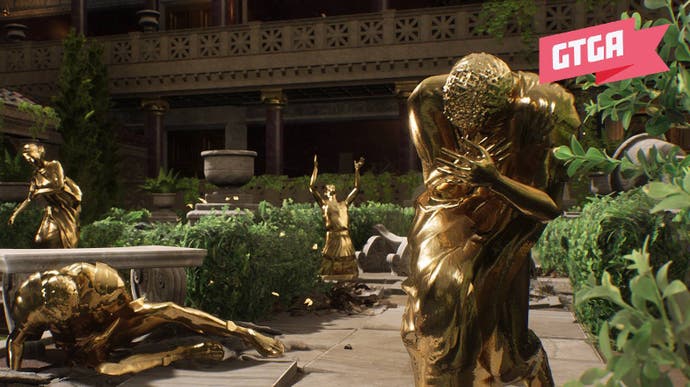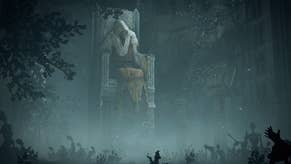The Forgotten City review - golden slumbers
What lies beneath.
Editor's note: Hello! Over the next few days we're running a "Games That Got Away" series, where we finally get round to reviewing games that released at some point in 2021 but, for various reasons, we couldn't quite manage to cover at the time.
We've gone back to a few real gems, so for more catch-up reviews like this one head to the Games That Got Away hub, where all our pieces from the series will be rounded up in one convenient place. Enjoy!
I had heard going in that The Forgotten City was a sort of first-person adventure game concerned with morality and the dense questions of right and wrong. And probably free will and the social contract and a bunch of other stuff I am generally too thick to understand.
And it is about those things! But it manages to bring them alive in a way that is fascinating and generous, a way that invites everybody in. And it's also spooky and weird and thrilling and audacious.
Oh, to begin you are lost in the woods, dragged from a river and prompted to enter a strange ruin nearby. Someone else has gone in recently, a man called Al, and maybe you could find him and make sure he's safe?
He's not safe, of course, and neither are you. After a tumble straight out of Alice in Wonderland you land deep underground, in an ancient city that has been chiselled from the rock. No getting back the way you came - only forward.
Except forward isn't so simple either. Because you quickly realise you're in a bit of a time loop, fated to live out the same day over and over for reasons that are far too good to spoil. Meet a few townsfolk and you discover it's a very special day, too. Someone's gone missing. Someone else is up for election. Someone's being threatened. Someone's in love. Oh yes, and there's the general condition that the town operates under: the Golden Rule. If anyone commits a sin, everybody dies.
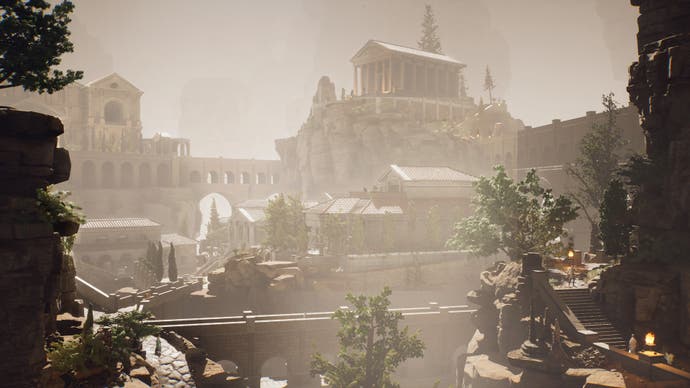
Bit harsh. And sure enough The Forgotten City spends a lot of its running time worrying away at this knot. What's morality if you're all just playing along to survive? Who gets to decide what's a sin in the first place? Is one sinful action in one circumstance the same as it is in another? Does it carry the same weight?
What saves this from sailing over my head and into the bright sky is that The Forgotten City always grounds these issues in the people you meet. And you meet these people because you're trying to solve a handful of central mysteries and a bunch of orbiting ones. Central stuff like what is this city? Why are all these people stuck here? Can they ever escape? Orbiting ones like, who has gone missing and why? Who's been sticking up all these ziplines? What's behind this or that locked door?
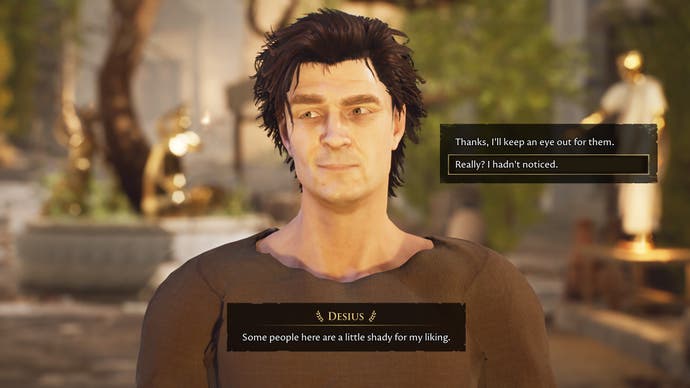
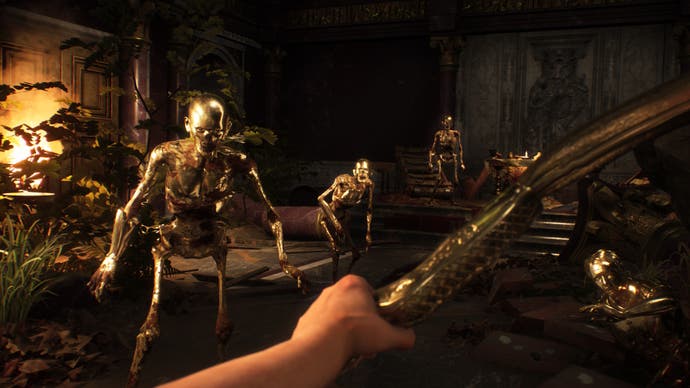
It's a pleasure to play a game with a lot of threads because it means the chances of getting badly stuck are slim: in The Forgotten City you can always progress with something. The game's extremely good at keeping track of everything and pointing you in the right direction, and there's a nice balance to things between exploration of the surprisingly intricate space you've been dropped into, chatting to the people you meet and trying to understand their perspectives and their needs, and engaging in a bit of action - something I didn't expect, to be honest, but which works quite neatly to break things up.
There are memorable moments here, most of which should not be spoiled. The time loop itself leads to some wonderful stuff, though, linking itself into puzzles in ingenious ways and kicking off, each time it's triggered, with a real blast of fantasy dread.
The Forgotten City began life as a Skyrim mod, I gather, and you can still see a bit of that in the way you move, the way the camera zooms in on the face of whoever you're currently talking to, the way rocks and trees are drawn and the way light falls. It feels like a mod in the best way, too - something ingenious and free-flowing, bursting out of a private obsession and interacting with players until it's formed this lovely, singular thing. I don't know which ending you'll get or what you'll take away from it - for me, the whole thing was not about morality so much as it was about the way that successive eras have struggled with morality's contradictions, until the whole thing is piled up like a pousse-café - but I know you should play it. It's fascinating and generous. It's spooky and weird and thrilling and audacious.
